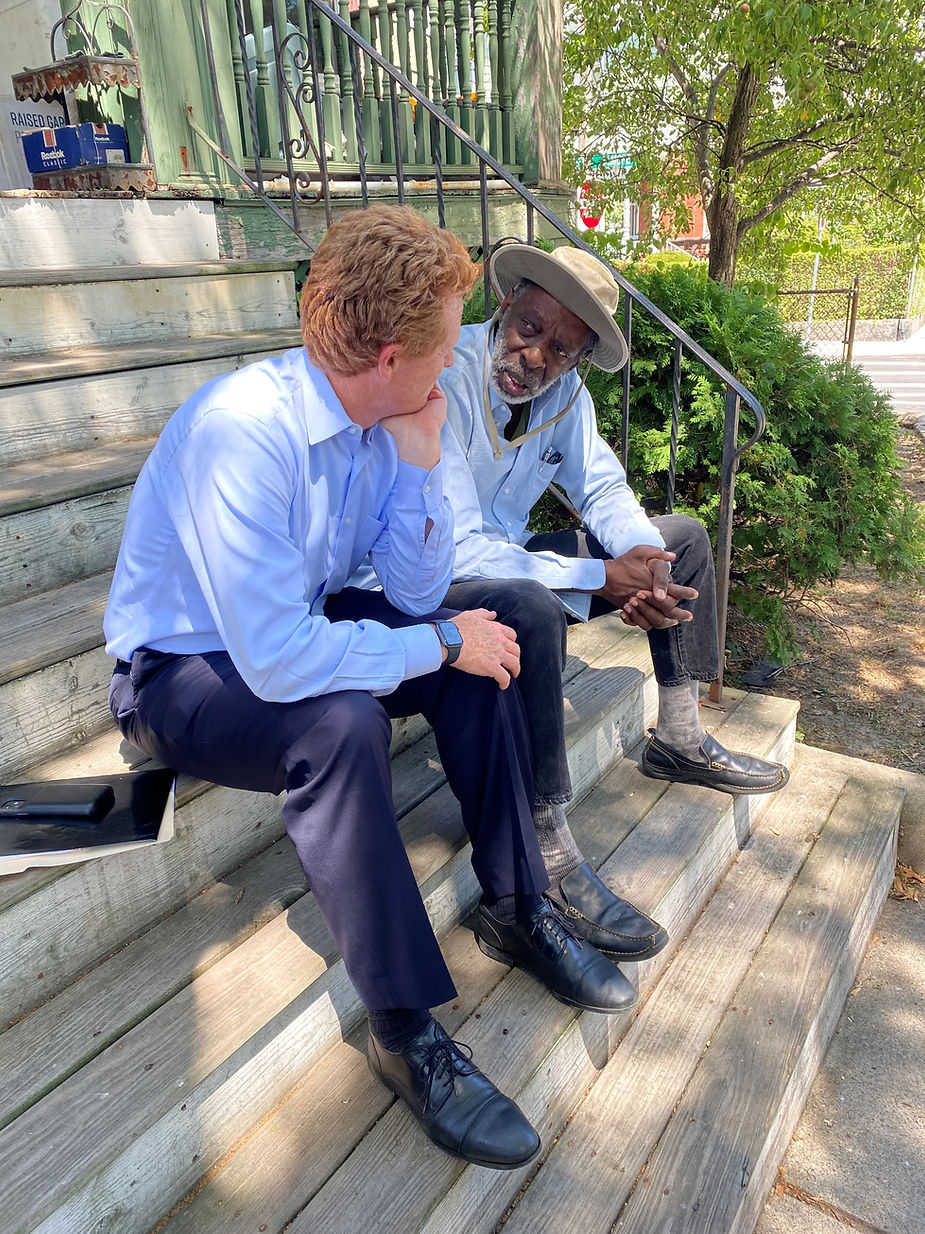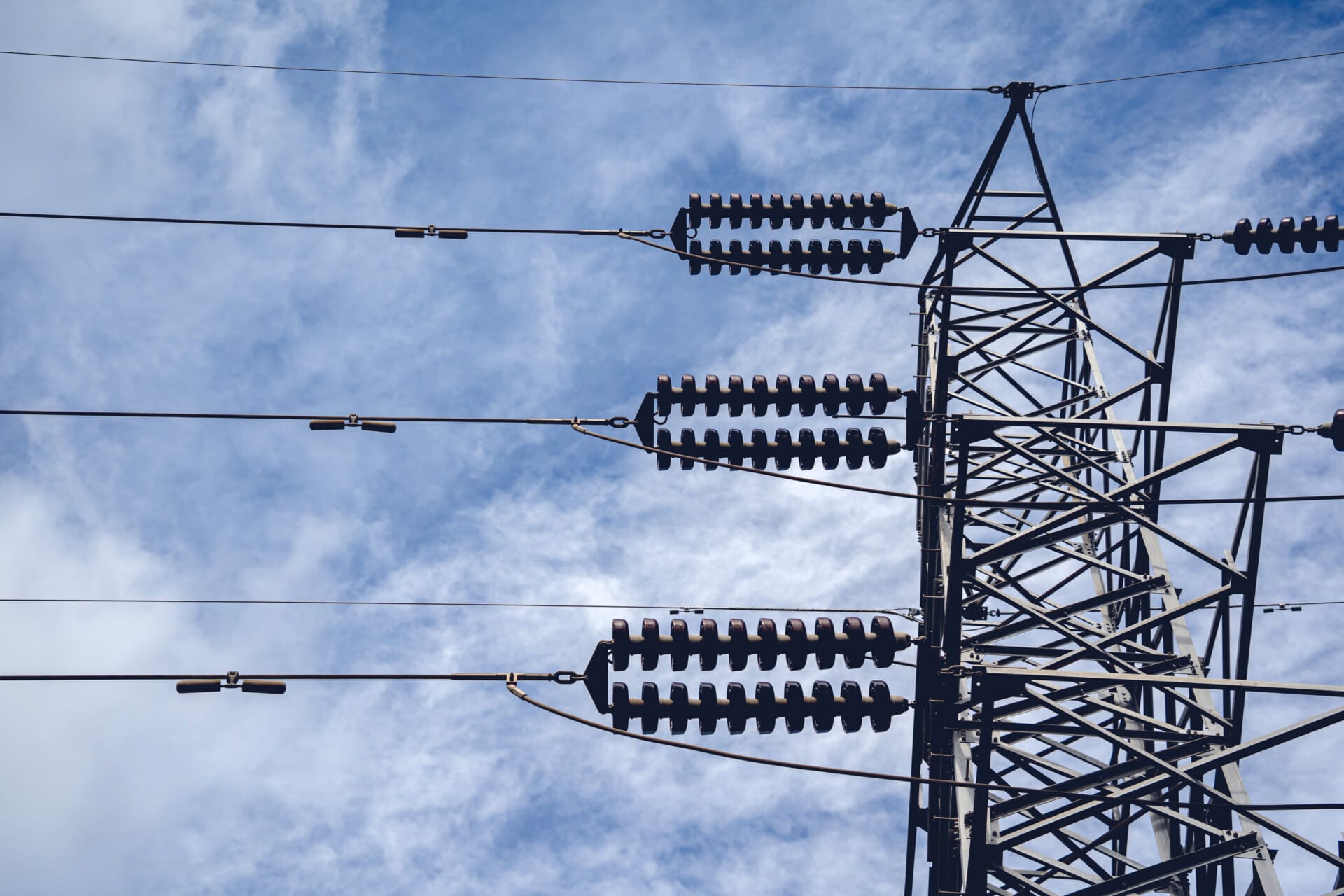Cooling costs, inflation putting pressure on energy assistance
- State House News Service
- By Matt Murphy

Former U.S. Rep. Joe Kennedy III talks with LIHEAP recipient Phillip Mayo. PHOTO: HANNAH GOETZ
BOSTON (State House News Service) – Federal energy assistance for low-income households ballooned during the COVID-19 pandemic to $8 billion, but with funding for heating and cooling aid forecast to return to normal levels and energy prices doubling in the last year advocates are calling on President Joe Biden to boost support for the Low Income Home Energy Assistance Program.
Former Congressman Joseph Kennedy III and leaders with Action for Boston Community Development and other organizations signed a letter to Biden Wednesday calling on him to increase funding for LIHEAP to $10 billion. Kennedy, whose father founded Citizens Energy to support low-income households, said most households pay about 5 percent of their budget on energy costs, but for low-income families the expense of heating and cooling their homes can climb to 40 percent.
While money from the American Rescue Plan Act was used to boost LIHEAP funding to $8 billion last year, the budget for the federal assistance program is set to return to $4 billion in fiscal 2023 despite the price of home heating oil doubling in the past year to over $5 a gallon.
“Please, Mr. President, please boost funding for LIHEAP so no one is left out in the cold,” Kennedy said, standing outside the Roxbury home of LIHEAP recipient Phillip Mayo.
Mayo said for families like his living on a fixed income the rising price of energy means he will be unable this winter to afford to fully heat his home. “If fuel assistance is not increased, we’ll go cold,” Mayo said.
Kennedy signed the letter to Biden along with leaders from ABCD, the Massachusetts Energy Marketers Association, the Massachusetts Association for Community Action, Global Partners, Energy Policy Research Foundation, and Citizens for Citizens. Biden was in Somerset last week to announce actions his administration was taking to combat climate change, including an allowance for states to use federal funds to pay for air conditioners in homes and set up community cooling centers in schools where people can get relief form the extreme heat.
Sharon Scott-Chandler, president of ABCD, said the maximum LIHEAP benefit last season totaled $2,100, and 75 percent of recipients who access benefits through ABCD had used up their aid by April. Liz Berube, executive director of Citizens for Citizens, said Massachusetts has historically never received sufficient funding to meet the need, often choosing to provide heating relief during the cold months without enough funds left over to help families with cooling expenses.
In addition to the $10 billion from the federal government, Berube said her organization is hopeful the Legislature will approve $10 million for energy assistance in the economic development bill still being negotiated on Beacon Hill.
“We asked for that because we could see the writing on the wall,” Berube said.


